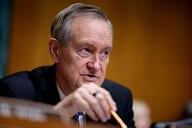You have /5 articles left.
Sign up for a free account or log in.
The journalism world was roiled and some within it recoiled back in 2005 when Northwestern University’s Medill School of Journalism, widely regarded as a top school in the field, announced its pick for the new dean. John Lavine, an expert on media strategy and management, came in with a sweeping charge to integrate Medill's journalism and marketing instruction in what many in journalism consider to be an unhappy and even dangerous marriage, and others describe as a necessary step in training future journalists for a rapidly changing business climate. Under the school’s strategic plan, “Medill 2020,” the school will be unveiling its revamped curriculum this fall, with the goal of ensuring that students learn about reporting and writing in the context of consumer, or audience, engagement.
Also upon Lavine’s arrival, though far less widely noted, the university suspended formal faculty governance procedures at Medill for 3.5 years – an act condemned as “unacceptable and in violation of the University’s Statutes” in a university-wide General Faculty Committee (GFC) resolution unanimously approved this month.
“The GFC believes that significant curricular changes require full faculty deliberation and vote,” reads the resolution. “The GFC further believes that the suspension of faculty governance is likely to have the following consequences: i. Curricular changes that are ill considered. ii. The demoralization and enmity of the faculty. iii. Damage to the national reputation of the school. iv. The loss of and the inability to hire faculty who believe that the faculty’s role in governance is important for students, faculty and the public.”
“If the administration in the future concludes that an unacceptable academic situation warrants the temporary suspension of the normal role of the faculty ‘to prescribe and define the course of study’…such suspension should be only for a set, limited period and only after formal approval by the Board of Trustees made after its consideration of the views of all concerned faculty," the resolution continues.
The suspension of formal faculty governance during this time of sweeping curricular change applies to all Medill faculty committees except the promotion and tenure committee, said Clarke Caywood, head of the public relations and corporate communications sector at Medilll. Caywood, who formerly sat on the General Faculty Committee as the faculty governance issue at Medill was being discussed, said the university's action is coming under formal scrutiny only now as the GFC attempts to assert itself.
The Medill faculty who do have input at the moment, Caywood said, were mainly handpicked by the dean to serve on committees, and do “not necessarily represent the faculty, certainly the faculty as a whole.”
“The dean has had the right heart, the right spirit here, but his political processes lack subtlety and that’s why he finds himself on the roasting spit,” Caywood said. “The dean is wrong and the university is wrong in not having a more formal process, and I certainly support the faculty resolution.”
Yet, he added, “I think that generally the faculty are more to blame than the administration…The school,” he said, citing the faculty’s general lack of initiative in governance and curricular issues, “was on a slide.”
Dean Lavine was traveling and unavailable for comment Monday. But while confirming that the university did in fact suspend formal faculty oversight for 3.5 years upon Lavine’s arrival, Alan Cubbage, vice president for university relations at Northwestern, likewise stressed that Medill professors have continued to offer significant input on various committees formed to re-envision the curriculum. “One of the questions is how should curricular changes be initiated? And Northwestern’s position is that this is an attempt to do what was recommended both by an internal study group and an external study group. And that was to take a hard look at the Medill curriculum and make those revisions that were necessary to continue to provide a high-quality education that is relevant to journalism in the 21st century,” Cubbage said.
“This is modeled on the procedures that are used at Northwestern’s Kellogg School of Management," Cubbage added in reference to Northwestern's graduate business school, where Lavine formerly taught. "Kellogg uses a similar process in which new courses created by faculty or a group of faculty are put in on a trial basis for a couple years." If they prove successful, Cubbage said, faculty will then vote to incorporate them in the curriculum on a more permanent basis.
Five different faculty members who teach traditional journalism specialties (including newspaper, magazine and broadcast journalism) either declined to be interviewed or failed to return messages Monday. John S. Elson, a professor of law and chair of the General Faculty Committee, also declined to comment publicly, indicating in an e-mail that conversations with the university administration about issues raised in the resolution are about to begin.




